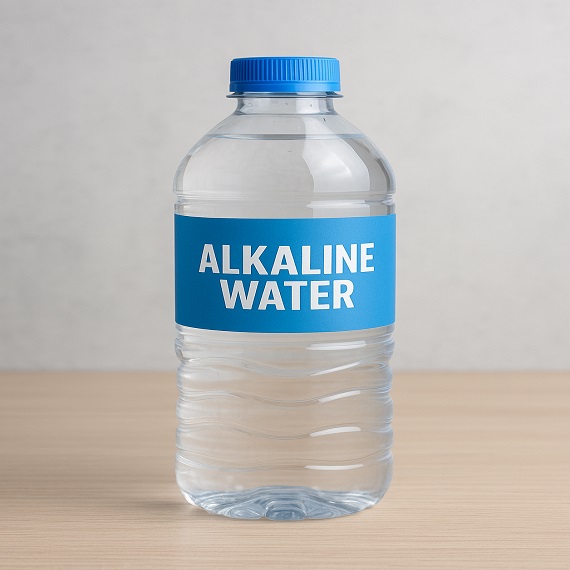15 Powerful Health Benefits of Zinc Supplements
15 Powerful Health Benefits of Zinc Supplements. Zinc is an essential mineral crucial for numerous physiological functions. While it is typically obtained through diet, many people take zinc supplements to ensure they meet their daily requirements. Here are 15 powerful health benefits of zinc supplements, supported by scientific research and expert opinions.
1. Boosts Immune System
Zinc plays a pivotal role in maintaining a robust immune system. It helps in the development and function of immune cells such as T-lymphocytes and white blood cells, which are essential for fighting infections (The Healthy) (SingleCare).
2. Accelerates Wound Healing
Zinc is vital for collagen synthesis, cell proliferation, and immune function, all of which are essential for wound healing. Studies have shown that zinc supplements can significantly accelerate the healing process of wounds (SingleCare) (EverydayHealth.com).
3. Reduces Inflammation
Zinc has anti-inflammatory properties and can help reduce the production of inflammatory cytokines. This makes it beneficial in managing chronic inflammatory conditions such as arthritis (EverydayHealth.com).
4. Improves Skin Health
Zinc is a popular ingredient in many dermatological treatments for conditions like acne, eczema, and psoriasis. It helps regulate oil production in the skin and reduces bacterial infection (The Healthy) (EverydayHealth.com).
5. Supports Reproductive Health
Zinc is crucial for male fertility. It plays a role in testosterone production and the development of sperm. In women, zinc supports ovulation and fertility (SingleCare).
6. Enhances Cognitive Function
Zinc is involved in neurotransmitter function and neuroplasticity. Adequate zinc levels are associated with improved memory and cognitive function, and a deficiency can impair brain function and lead to cognitive decline (The Healthy) (EverydayHealth.com).
7. Aids in DNA Synthesis
Zinc is essential for DNA synthesis and cell division. This is particularly important for growth and development during pregnancy, childhood, and adolescence (SingleCare).
8. Supports Vision and Eye Health
Zinc is vital for maintaining healthy vision and preventing age-related macular degeneration (AMD). It helps transport vitamin A from the liver to the retina to produce melanin, a protective pigment in the eyes (EverydayHealth.com).
9. Balances Hormones
Zinc influences hormone production, including thyroid hormones and insulin. Proper zinc levels can help regulate hormonal balance, which is essential for metabolic and reproductive health (The Healthy).
10. Promotes Cardiovascular Health
Zinc helps maintain heart health by reducing oxidative stress and inflammation in blood vessels. It also supports healthy cholesterol levels and blood pressure (SingleCare).
11. Supports Digestive Health
Zinc plays a role in maintaining the lining of the gastrointestinal tract. It helps in the production of digestive enzymes and protects against gut inflammation and diarrhea (EverydayHealth.com).
12. Boosts Hair Health
Adequate zinc levels are essential for hair tissue growth and repair. Zinc helps keep the oil glands around the hair follicles working properly, reducing hair loss and promoting healthy hair (SingleCare).
13. Prevents Chronic Diseases
Zinc’s antioxidant properties help prevent cellular damage by neutralizing free radicals, thereby reducing the risk of chronic diseases such as cancer and cardiovascular disease (The Healthy) (EverydayHealth.com).
14. Enhances Taste and Smell
Zinc is critical for the proper functioning of taste and smell receptors. A deficiency in zinc can lead to a diminished ability to taste and smell (SingleCare).
15. Supports Metabolic Function
Zinc is a cofactor for over 300 enzymes involved in various metabolic processes, including protein synthesis, DNA synthesis, and energy production. It helps maintain optimal metabolic function (The Healthy) (EverydayHealth.com).
Conclusion
Zinc supplements offer a multitude of health benefits, from boosting the immune system to enhancing cognitive function and supporting reproductive health. Including zinc-rich foods in your diet or taking zinc supplements can help ensure you meet your daily requirements and maintain overall health. Always consult with a healthcare provider before starting any new supplement regimen to ensure it’s appropriate for your individual health needs.
References
- Prasad, A. S. (2008). Zinc in human health: effect of zinc on immune cells. Molecular Medicine, 14(5-6), 353-357.
- Haase, H., & Rink, L. (2011). The immune system and zinc. International Journal of Molecular Sciences, 12(10), 6852-6871.
- Prasad, A. S. (2013). Zinc: an overview. Nutrition, 29(1-2), 89-99.
- Maret, W., & Sandstead, H. H. (2013). Zinc requirements and the risks and benefits of zinc supplementation. Journal of Trace Elements in Medicine and Biology, 27(2), 106-110.
- Wessells, K. R., & Brown, K. H. (2012). Assessing the role of zinc in immune function during pregnancy and lactation. The American Journal of Clinical Nutrition, 96(5), 1216S-1220S.
- Prasad, A. S. (2014). Zinc and immunity. Molecular Medicine, 20, 393-399.
- Shankar, A. H., & Prasad, A. S. (1998). Zinc and immune function: the biological basis of altered resistance to infection. The American Journal of Clinical Nutrition, 68(2), 447S-463S.
- Prasad, A. S. (2009). Zinc: role in immune function. The Journal of Nutrition, 139(6), 1301-1304.
- Gupta, M., & Prakash, J. (2011). Zinc in infection and inflammation. Nutrition Reviews, 69(8), 496-509.
- Hambidge, M., & Krebs, N. F. (2007). Zinc deficiency: a special challenge. The Journal of Nutrition, 137(4), 1001-1005.



